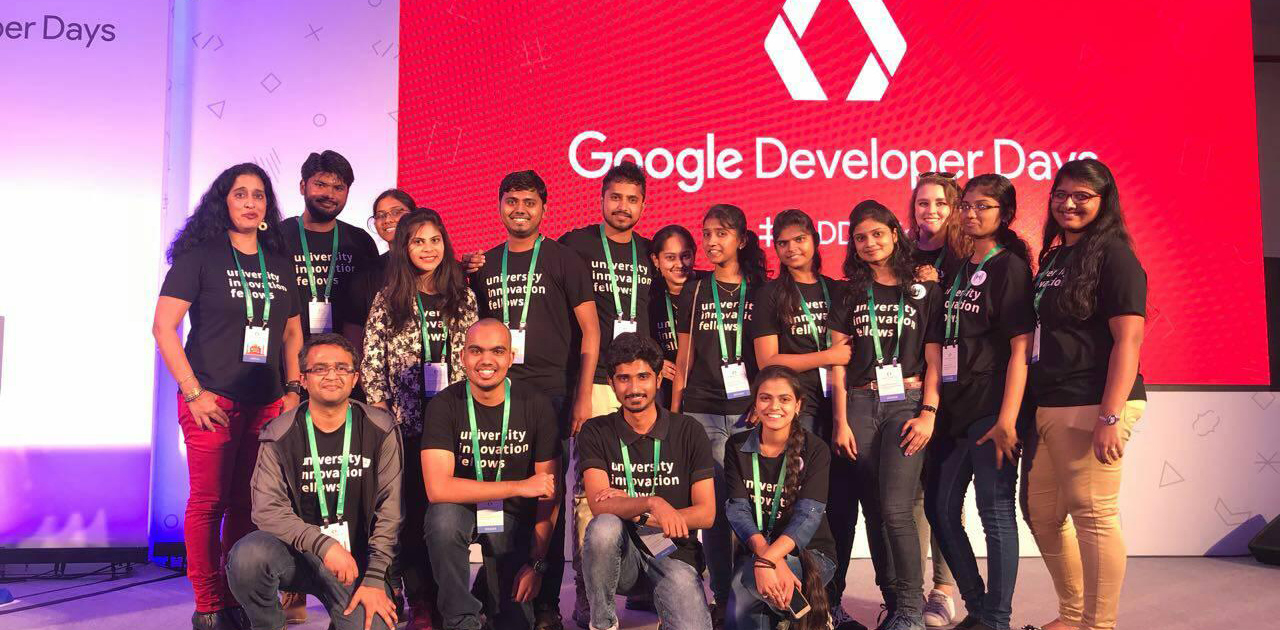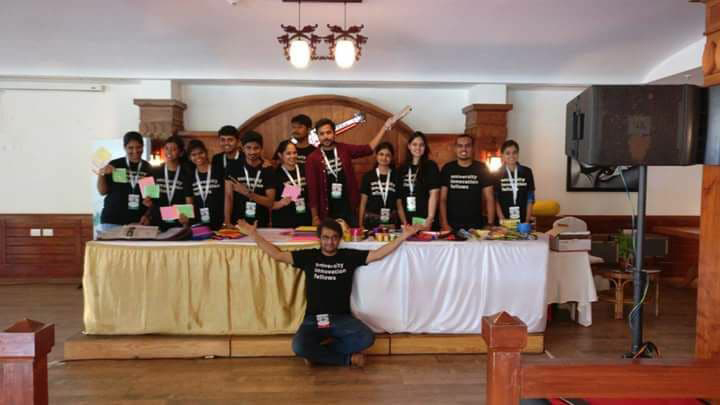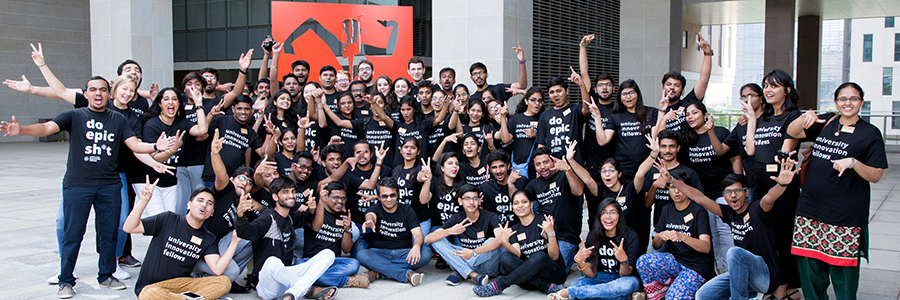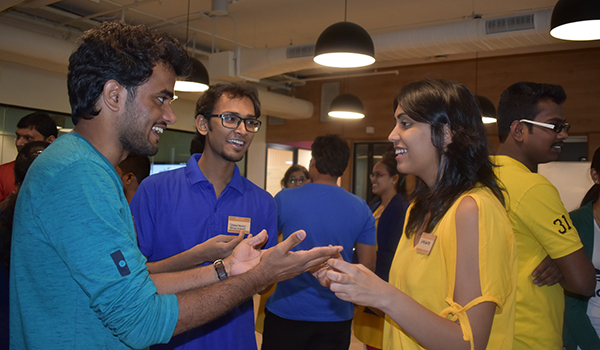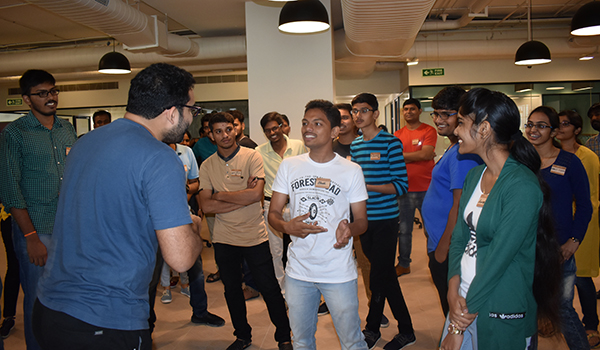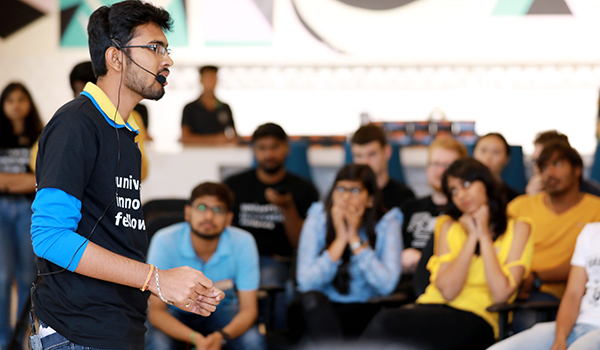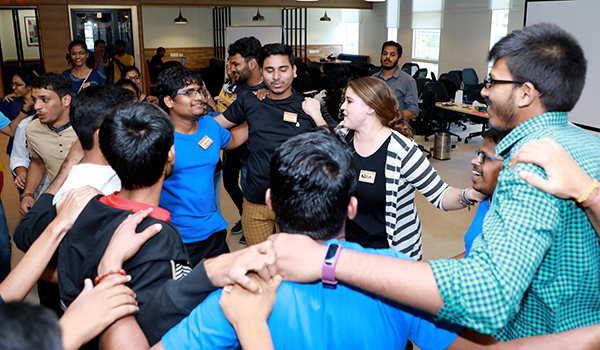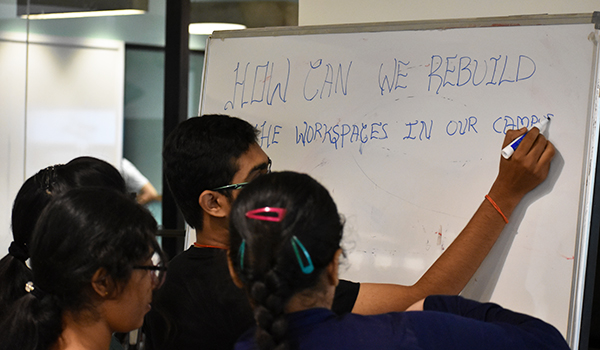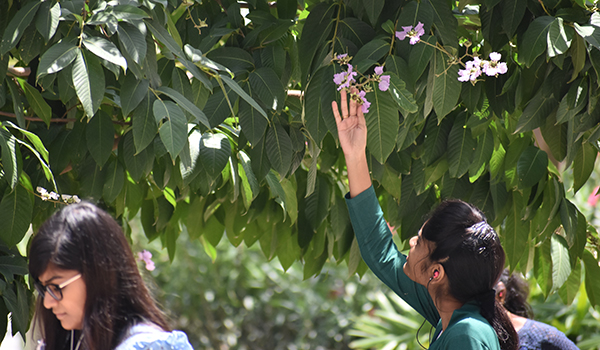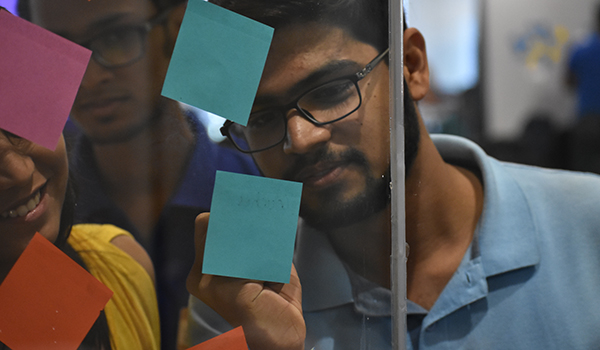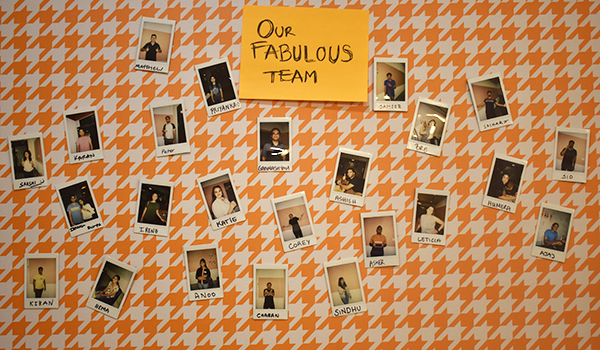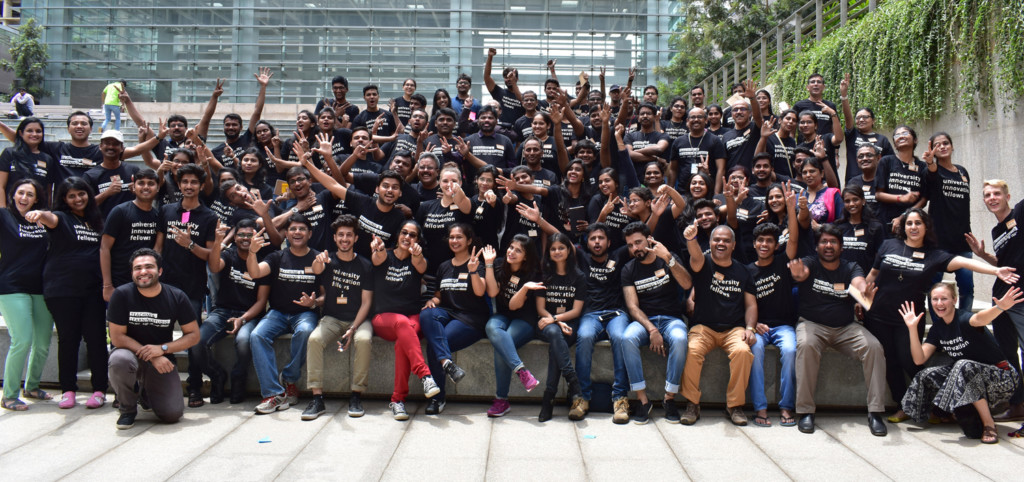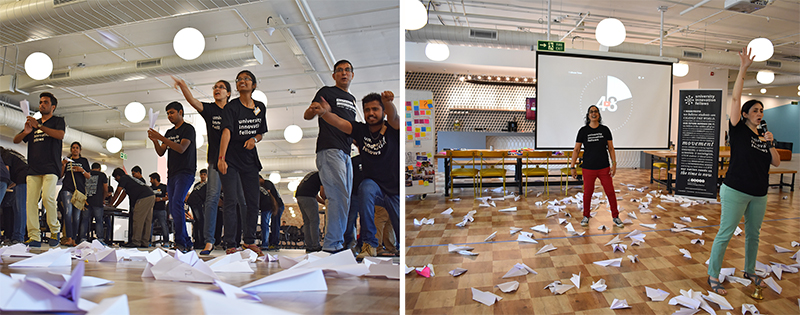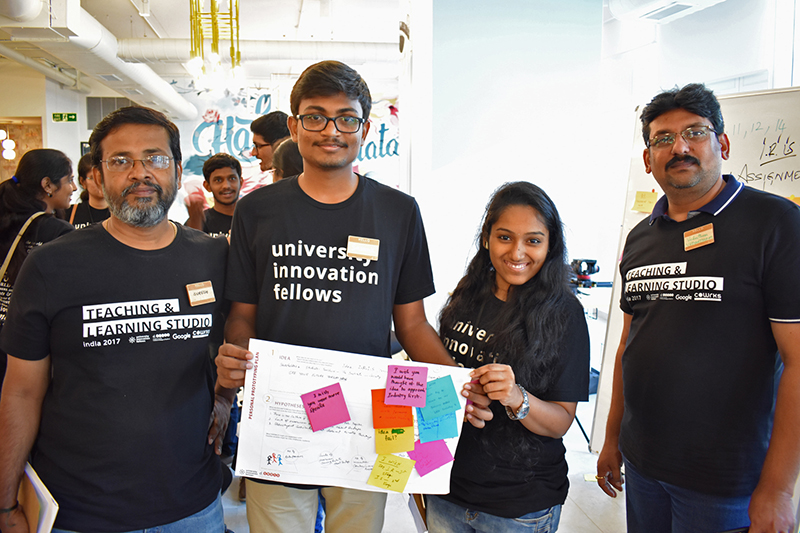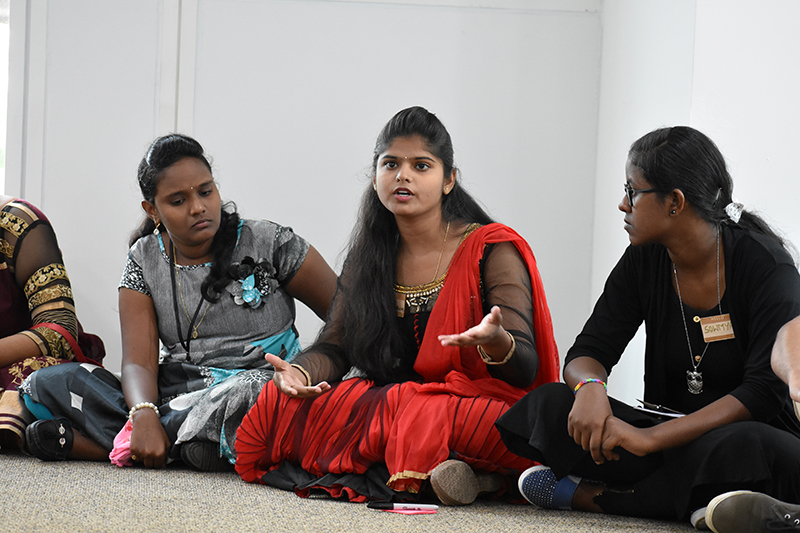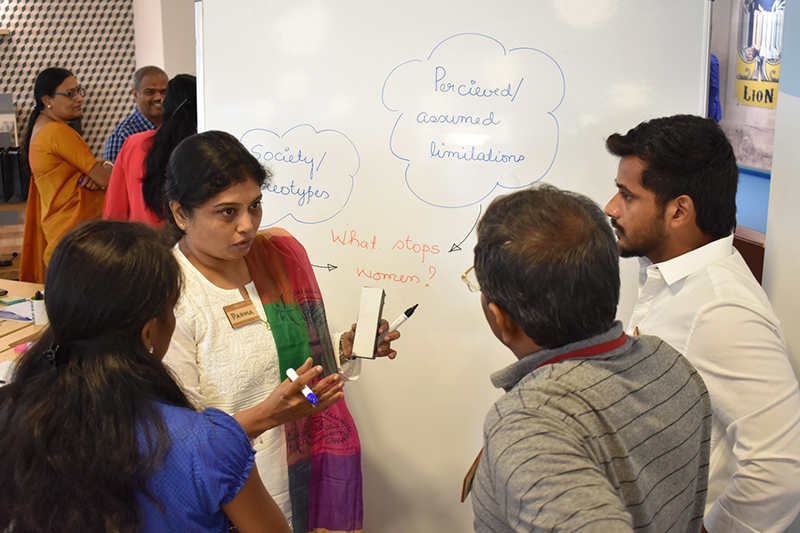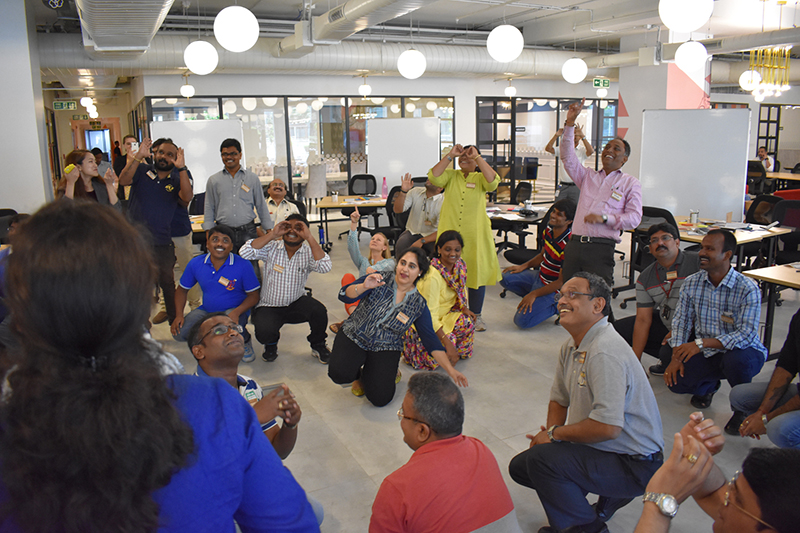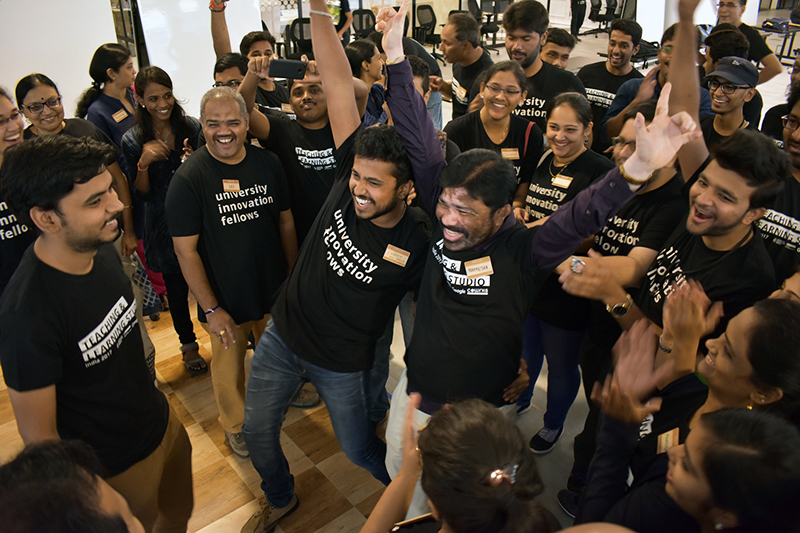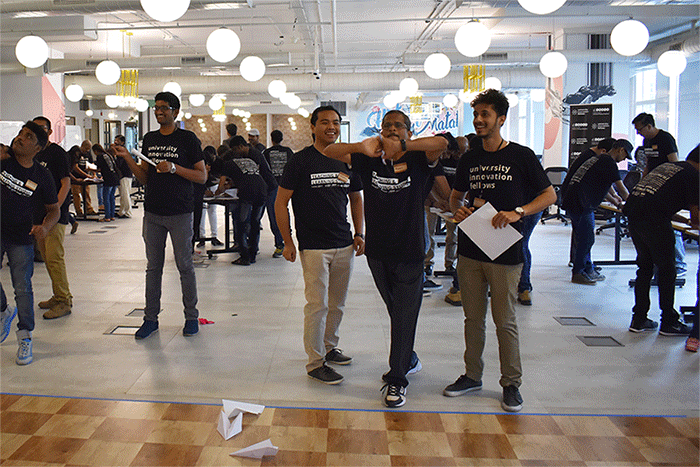Case Study: The Journey of the UIF Program at Madanapalle Institute of Technology and Science
Fellow Shivanika Shah interviewed Fellows and faculty at Madanapalle Institute of Technology and Science to better understand the impact of the University Innovation Fellows program at their school.
By Shivanika Shah, Fellow, JSS Academy of Technical Education, Noida
The journey of the University Innovation Fellows in Andhra Pradesh, India was ignited by 6 inspiring students from one of the esteemed colleges of India: Madanapalle Institute of Technology and Science (MITS). These students, the first Fellows at MITS, worked passionately towards developing a community and promoting innovation and entrepreneurship in their ecosystem. With their continuous efforts and zeal they were successful in creating an impact on their campus.
Before and after the UIF program at MITS
Before participating in the UIF program, students at MITS weren’t fully aware of the resources and the various opportunities they had at their campus. They stayed divided in their own comfort zones, not interacting with other students of different years and departments, nor with faculties and administration. Students didn’t know whom to contact for their ideas, growth and development and thus struggled for opportunities outside their campuses.
But, now with the onset of UIF program at MITS, the Fellows have successfully created a learning community in which the students of all fields, years and backgrounds are invited and build products and solutions for the real life problems. The students are guided and encouraged by the faculties and management. The system has now been channelized by the Fellows and faculty champion through community development, interactions and now an online platform.
The changes can be seen in the selection of candidates for the UIF program too. Earlier, the fellows were selected on the basis of their past achievements. Now UIF candidates are all selected by clearing all the screening rounds by the faculties, management, and the MITS UIF team, giving equal opportunity to everyone to showcase their skills.
Transformation in relations
Initially, the students didn’t interact much among themselves, with the faculty or the management. The Fellows brought the necessary transformation into these relations by building a campus that has a student-friendly culture. Management and faculty are now more sensitive to the needs of students. They cite UIF workshops, student-faculty interactions and regular stakeholder meetings as the key events which brought the transformation.
The changes didn’t happen overnight, but rather over a period of time with the sustained efforts of the MITS UIF team. Vijaya Lakshmi, the faculty champion of the MITS Fellows said, “It wasn’t a revolution but an evolution in which slowly and gradually the barriers were reduced among students and faculties for which 1st batch students worked very hard. hey still provide support and guidance to the future batch of fellows and are always available.”
Now, the MITS Fellows have built an online platform to further encourage students to interact and collaborate with any of their peers and faculties for their development, growth, innovative and entrepreneurial projects and ideas.
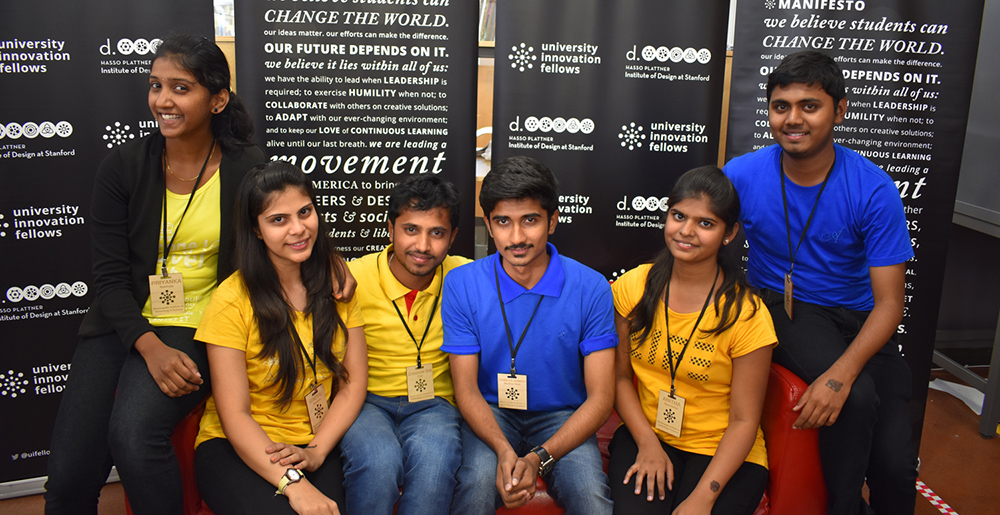
Changes the UIF program brought in the MITS campus ecosystem
- Improved relations among students and between faculties and students
- Inclusion of more innovative and creative ecosystem
- Platform for interaction with like minded people of diverse fields
- Involvement of students in decision making
- Onset of interdisciplinary events and projects
- Building of a makerspace
- Development of student friendly ecosystem
- Focus on Entrepreneurship
- Focus on product development and problem solving.
- Commencement of Design Thinking course as an open elective.
- Online platform for learning and collaborations.
- Making students ready for professionalism and way of working of corporate sectors
- Increase in campus activities and reduced dependency on outside organizations
- Channelized and systematic ecosystem
Future goals and plans for making the UIF program sustainable at MITS campus
The MITS Fellows Team is looking forward to continuing to select students as future UIF candidates for the program. They plan to include a “Design Thinking” course as an open elective in their curriculum and have designed the syllabus and textbook for the same. They aim to spread and share this knowledge to every student of their campus and then to the entire community and world!
Experiences of the MITS Fellows team
Vijaya Lakshmi, the faculty champion of the MITS Fellows said, “The UIF program and especially the UIF Silicon Valley Meetup gave the students the inspiration and the confidence to participate in other programs. Three students were selected in ASIA Pacific Innovation Academy program and are currently undergoing three weeks onsite training. Amazing impact can be seen in every Fellow’s personal life and the impact is positively contagious.”
Fellow Preethi said, “We have seen students overcoming their own limitations and do wonders. They feel the UIF program is not only for fellows but it’s theirs too.”
“We as Fellows act as bridges between the students and faculties.” said Fellow Hema. “Students now know whom to contact for their ideas and problems and are fully aware of all the resources they have at MITS.”
The Fellows themselves have experienced impacts in their lives. Hema said, “I have realized the importance of teamwork and in general can see the increasing graph of development everyday at my campus.”
Preethi remembers the time when she was selected as a Fellow and had to face intriguing questions. She shared, “My peers asked me, why have I been selected as a Fellow? What have I done? I didn’t have any answer at that time. I worked and fulfilled all my responsibilities as a Fellow. Later, after one of the workshops I conducted, my friends came up to me and said that I am the right candidate for being a Fellow. I guess, being a Fellow you don’t need some extraordinary skills, but it’s all about empathy. I am glad to be selected as a Fellow and interact with so many amazing people out there.”

